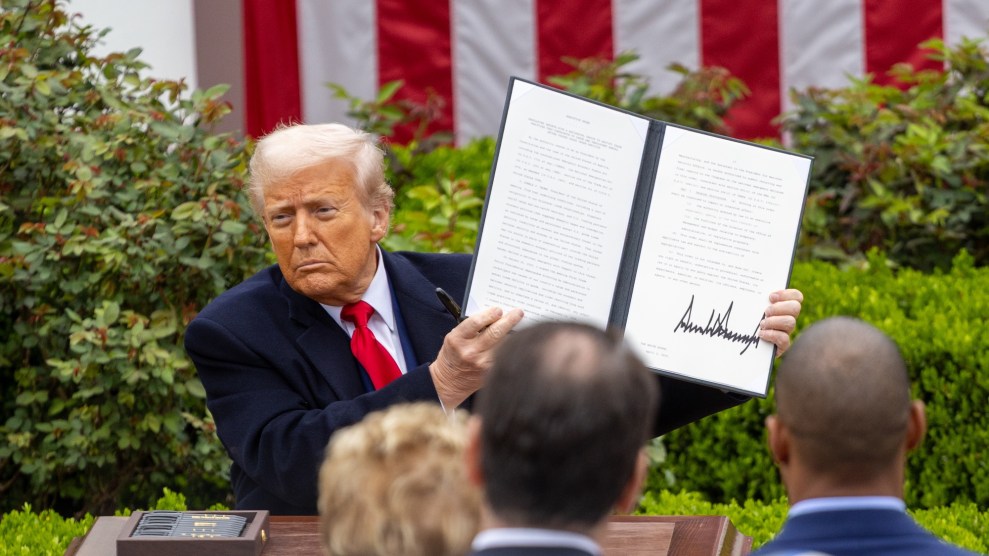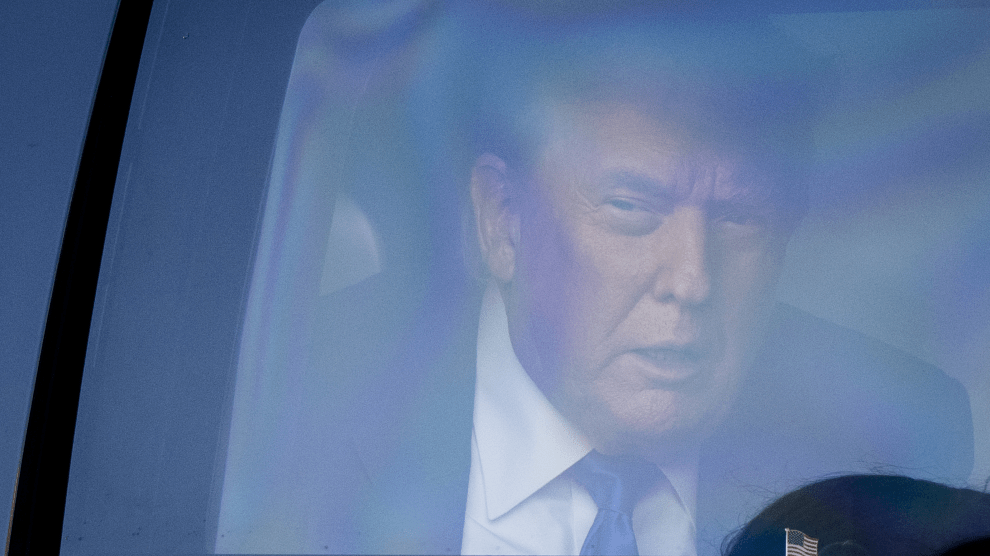When Donald Rumsfeld became Secretary of Defense in 2001, he vowed to bring change to the Pentagon. If anything, he was harsher in his criticism of the DOD’s dysfunction than Gates and Obama are now. In a speech on September 10, 2001, Rumsfeld called the department’s bureaucracy “an adversary that poses a threat, a serious threat, to the security of the United States of America. In this building, despite this era of scarce resources taxed by mounting threats, money disappears into duplicative duties and bloated bureaucracy…”
Rumsfeld pledged to fix the DOD’s archaic accounting system—which had lost track of $2.3 trillion in transactions—to root out waste, and to fix a procurement system that routinely delivered expensive, outdated weapons programs. Unfortunately, things didn’t exactly work out that way. So what happened? Well, Bradley Graham’s new 600-plus-page opus on the life and works of Donald Rumsfeld provides a couple of intriguing clues.
Justin Elliot over at TPM picks up one interesting tidbit—that Rumsfeld may have been reluctant to cancel big weapons programs because of his own considerable financial stake in the defense sector. “Several of Rumsfeld’s associates saw the secretary’s inclination to put off big cuts early on as a direct result of his own financial situation,” Graham writes. Before arriving at the Pentagon, Rumsfeld was supposed to divest himself of the interests in his $50-$210 million portfolio that did business with the DOD. “But the divesture process was going slowly because a considerable amount of Rumsfeld’s wealth was in private partnerships and closely held corporations that were difficult to sell. Under the circumstances, Rumsfeld told associates he was hesitant to take significant action on defense acquistion programs.”
On at least one occasion, Rumsfeld simply dropped the ball on his ambitious promises. Take his pledge to fix the department’s woeful accounting practices. He set up a council of senior advisers to oversee reform and counter the parochialism of the services. But according to Graham, Rumsfeld never showed up for a single meeting of the council, and so all the talk of reform went nowhere.
Or maybe Rumsfeld was just plain clueless. At one point, Rumsfeld is grilling an underling about how to trim $45 billion from a budget plan and remarks, “There’s so much waste in this department. I saw a guy who had two copying machines.” Suffice to say that in the annals of Pentagon waste, superfluous photocopiers don’t rank very high on the list.














